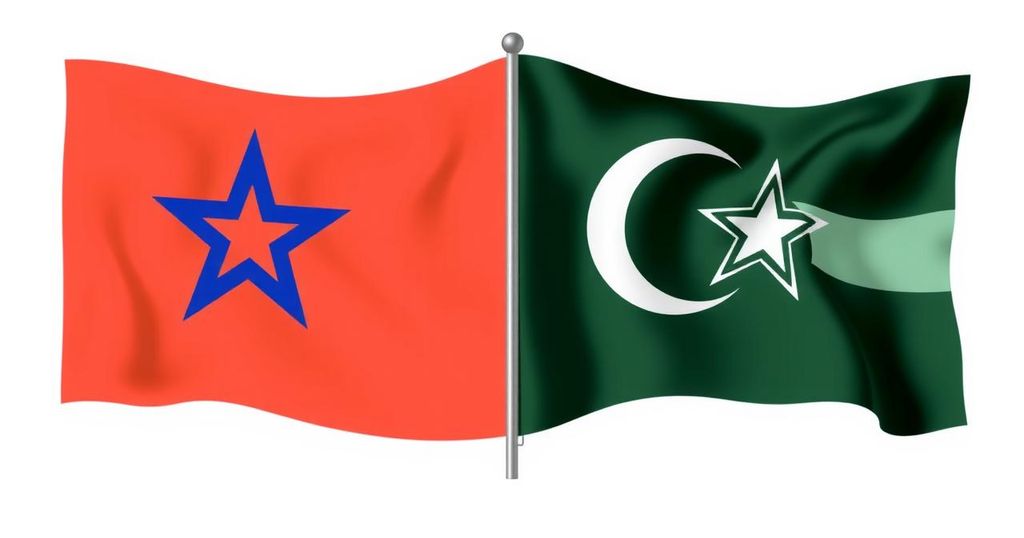Ankara Agreement Affirms Ethiopia’s Role in Promoting Stability in Somalia

The Ankara Agreement recognizes Ethiopia’s sacrifices for peace in Somalia and the Horn of Africa. It highlights the importance of cooperation between the two nations, as emphasized by Somali President Hassan Sheikh Mohamud. The agreement is deemed beneficial not only to Ethiopia and Somalia but also to the broader region, as it seeks to ensure long-term stability and deter external destabilizing forces.
The Ankara Agreement has formally acknowledged the significant contributions and sacrifices made by Ethiopia towards securing peace and stability in Somalia and the broader Horn of Africa region. At the signing event, President Hassan Sheikh Mohamud of Somalia emphasized the necessity of building partnerships founded on cooperation, particularly given the region’s susceptibility to instability. He highlighted the historic and strategic relationship between Ethiopia and Somalia, which is founded on mutual respect and common goals. President Mohamud commended the Ethiopian armed forces for their unparalleled efforts in peacekeeping operations in Somalia and recognized the ultimate sacrifices they have made for the nation’s stability.
This acknowledgment not only reinforces the relationship between Ethiopia and Somalia but also demonstrates Ethiopia’s steadfast friendship and commitment to regional peace. Professor Brook Hailu, a political science researcher at Addis Ababa University, noted that the Ankara Agreement offers benefits to both countries while also extending its positive impact to the entire region. He asserted its importance in promoting long-term stability in the Horn of Africa by mitigating destabilizing external influences. According to Professor Hailu, “This agreement sets a strong foundation for peace and cooperation, demonstrating Ethiopia’s recognition of Somalia’s sovereignty and respect for the sacrifices both nations have made.”
The agreement, facilitated by Turkish President Recep Tayyip Erdoğan, represents a mutual commitment to dialogue and respect, aimed at finding sustainable resolutions to persistent regional challenges. Fetih Mahdi, Deputy Chair of the House of People’s Representatives Standing Committee for Foreign Affairs, echoed these sentiments, stating that the agreement reinforces the diplomatic and economic ties between Ethiopia and Somalia. He noted the importance of the mutual benefits gained through constructive engagement, asserting, “Ethiopia’s steadfast commitment to peace and development is evident in this agreement which underscores our country’s leadership in fostering regional collaboration.”
The Ankara Agreement has been recognized as a model for diplomatic engagement and a means to secure enduring stability and prosperity in the Horn of Africa, earning acclaim from both regional and international observers. In a follow-up statement, Prime Minister Abiy Ahmed reiterated Ethiopia’s commitment to strengthening people-to-people connections and deeper collaborations with Somalia, reaffirming that both nations aspire to a peaceful and prosperous future.
The Ankara Agreement is a pivotal accord that recognizes Ethiopia’s essential role in promoting peace in Somalia and the Horn of Africa. This signing event outlines a framework for cooperation and respect among nations that have historically shared a complex relationship marked by both conflict and collaboration. The agreement not only symbolizes mutual respect but also aims to bolster regional stability by addressing the shared challenges faced by Ethiopia and Somalia.
In conclusion, the Ankara Agreement plays a crucial role in acknowledging Ethiopia’s sacrifices towards peace in Somalia, thereby strengthening diplomatic and economic ties between the two nations. The agreement lays a foundation for continued cooperation, emphasizing the significance of mutual respect and commitment to regional stability. This development signifies hope for a brighter future in the Horn of Africa, reinforcing the importance of collaborative efforts in overcoming historical challenges.
Original Source: www.ena.et








